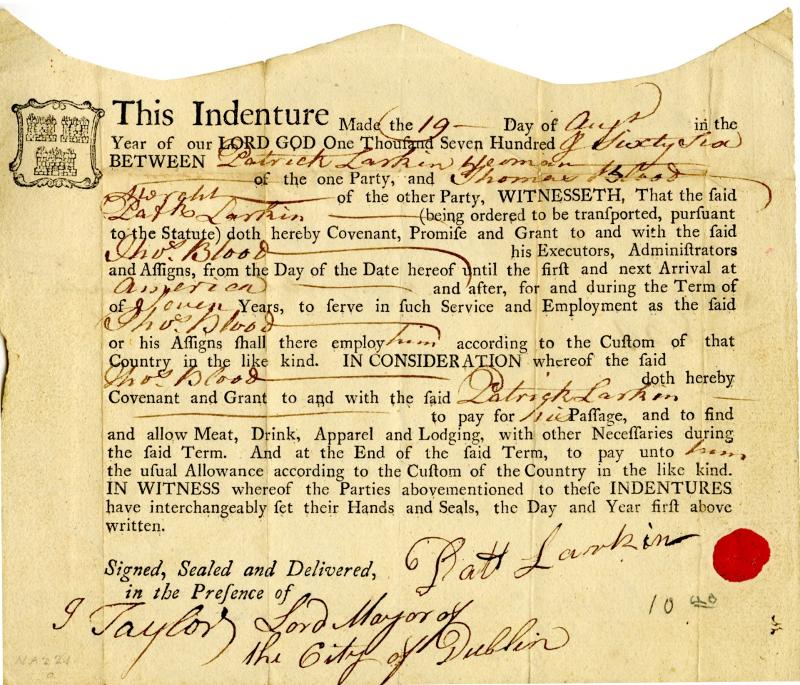Step 3: Consider the Traveler's Belongings
A person's property was an essential aspect of trade relationships in trans-Atlantic travel. Slave traders stripped their captives of any belongings and clothing when they were forced onto ships. The lack of privacy and mementos added emotional hardship to the physical crises these enslaved people faced.
Migrants from Europe were more likely to have packed some belongings in advance, but they could end up in indentured servitude if the value of their cash and belongings did not cover the expenses of their transportation. Unexpected costs like medical care for sick relatives depleted the travelers' savings to the point that many could not pay the full price of their ship fare upon arrival in America. To compensate the shipping company, indebted travelers and their children signed contracts like this:
The indenture contracts formed a partnership between the traveller and the "master" to exchange years of service for a promise of future compensation like acres of land, livestock, clothing, and room and board during the time of service. Click the image to take a closer look at the terms of this contract between servant Patrick Larkin and master Thomas Blood. Review each man's responsibilities to decide if this seems like a fair contract:

There are also several important questions you could ask about each man's responsibilities, including what specific duties will be required during Patrick Larkin's sevice and how many provisions will be provided by Thomas Blood. The generalities of this type of contract made it likely that the master would maximize his profit by requiring too much work in return for too few resources.



